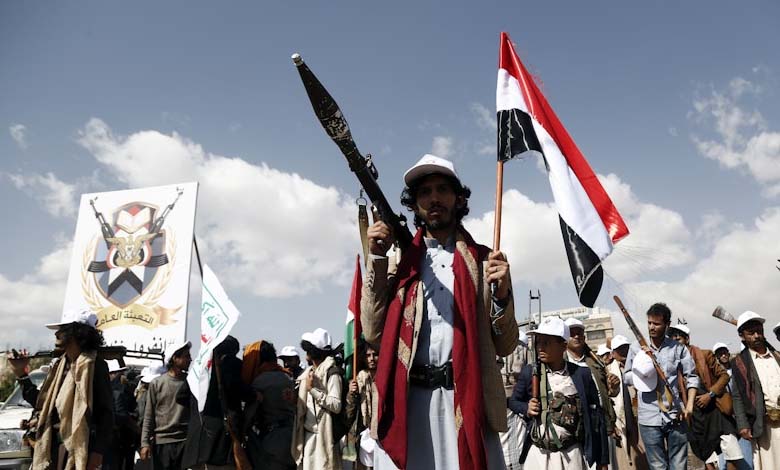Targeting the administrative front: painful scenarios for the future of the Houthis

The Israeli strike that targeted Houthi leaders has created a state of disarray within the movement, raising questions about the impact of losing its leadership generation.
On Saturday, the Houthi militias announced the death of their internationally unrecognized Prime Minister, Ahmad Ghalib al-Rahwi, along with several ministers, in the Israeli strike carried out Thursday on Sana’a.
-
Houthis Escalate Targeting of Religious Institutions: Abduction of Imams and Closure of Quranic Centers
-
Clashing Interests Outweigh Cooperation… Why Did the Houthis Kill a Prominent Muslim Brotherhood Leader?
A gap and confusion
Analysts argue that the loss of the Houthis’ prime minister and cabinet members has created a clear gap in the group’s administrative structure, weakening its ability to manage the conflict and engage in strategic planning.
They stress that targeting Houthi leaders, regardless of their rank, represents a major shift in the confrontation, sparking discussions on the group’s future should such strikes continue and further undermine its decision-making processes.
For Yemeni political analyst Bassam al-Hakimi, the elimination of administrative leaders and the Houthis’ political façade directly impacts the speed of decision-making, depriving the movement of accumulated expertise in several fields.
-
Houthis and the Muslim Brotherhood share sabotage roles in Aden… Details
-
Are the Houthis Risking the Ceasefire Agreement with Washington to Support Iran?
Al-Hakimi said: “Losing the administrative generation and the Houthis’ façade leadership represents a significant development from both organizational and political perspectives, with direct and indirect repercussions on the group.”
He believes this loss will inevitably affect the Houthis’ decision-making process, due to the absence of accumulated experience in fields such as conflict management, negotiation, resource mobilization, and balancing power internally as well as with allies and rivals.
He added: “The absence of such figures leads to slower decision-making, especially on complex matters such as managing battlefronts or dealing with allies. It also opens the way for the rise of younger, more hardline elites who lack experience, which increases the likelihood of confusion within the group in the coming stage.”
-
Has Mossad Penetrated the Houthis’ Operations Room?
-
The Muslim Brotherhood Crush the Last Line of Defense Against the Houthis… and Open a New Front Against Marib’s Tribes
Partial paralysis within the group
Political researcher Saleh al-Duwail sees the strike as having caused a partial paralysis inside the movement by targeting its leadership façade.
He explained that the Houthis will need time to recover from these losses, which undermines their ability to plan and act effectively in the short term.
He also warned that the weakening of the group’s administrative structure increases the risk of poor coordination between new and old leaders, thereby heightening the probability of strategic missteps.
-
Houthis’ Opening of a Vital Road Between Sanaa and Aden Reflects a Tactical Shift
-
Houthis Continue Their Crimes and Turn Yemen Into a Battleground for Iranian Conflicts
Abdelqader al-Khali, professor of political science at Taiz University, agrees with the assessment of the Israeli strike’s impact on the Houthis, though he views it as limited.
“There is no doubt that the Houthis lost leaders in the latest attack, but they were not top-tier figures directly involved in political decision-making or in controlling the movement’s fate,” he said.
However, al-Khali pointed out the beginning of “a new phase of intelligence work that is starting to yield results.”
He predicted that in the coming days Israel may target more influential Houthi leaders from the first and second leadership tiers, or military commanders whose decisions directly affect the group’s strategic orientation.












